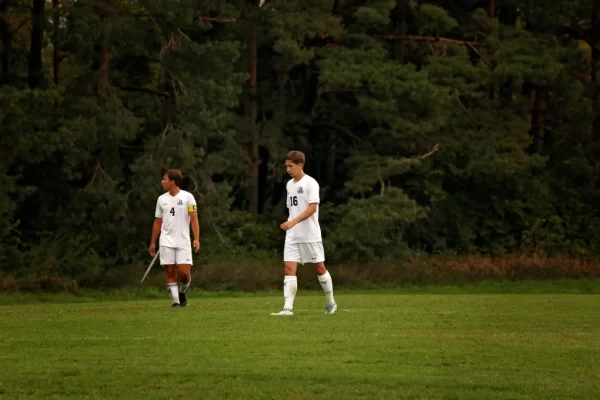Sports — even at the high school level — require a significant commitment and take up a great deal of an athlete’s time. As there are only so many hours in a day, one must decide how to divide his or her time between sports, schoolwork, and other responsibilities. There is no doubt that physical activity is a necessary and valuable part of a healthy lifestyle; exercise makes one more alert and cheerful, and sports can teach teenagers irreplaceable lessons in leadership, cooperation, perseverance, and failure. In addition, participating in sports often makes students more focused, and many people find that they perform better when under pressure, i.e. from having less time because of athletic commitments. While participating in a sport can benefit students’ academics in myriad ways, there comes a point when one simply cannot do everything that needs to be done, and something must give way. When it comes to deciding between sports and schoolwork, students often sacrifice the latter for the demands of the former. However, when weighing the benefits of focusing on academics or athletics, one must consider the true long-term value of each. With that in mind, the following question seems unavoidable: is the time high school students spend in organized sports really warranted, and does that commitment actually pay off?
In our culture, sports are a vaunted and highly esteemed enterprise. People are personally attached to their favorite teams and players, and successful athletes are praised and respected for their achievements. Let’s face it: especially among boys, sports are often valued more highly than schoolwork — few male teenagers want to be known as someone who is more interested in academics than athletics. In addition, all sports are a group undertaking, and when one defaults on those responsibilities for the sake of school, the whole team suffers. It’s easier to tell yourself, “Oh, I’ll just study really hard for the next test” than to deal with the repercussions of letting your team down during the big game because you were tired and worn out from doing homework.
While the upcoming sectional match against the school’s perennial rival might seem far more important than that final exam in history, the truth is that, in the long run, one’s academic qualifications and abilities will be more valuable to colleges and employers than one’s athletic abilities. According to the NCAA itself, 5.7% of high school football players participate in its sports conference, and 1.8% of those athletes go on to play professional football. That means that only 0.08% (8 out of every 10,000) of high school football players will someday play on a professional team. In other words, it’s 100 times easier to get into Yale, than it is to go pro. Accordingly, a question that teenagers rarely ask themselves — but one that needs to be addressed — is whether their limited time is best spent trying to become better athletes or better students.
Although most high school athletes don’t have serious professional aspirations, many do genuinely want to play in college, a factor that would definitely need to be considered when balancing time commitments. Furthermore, for a certain number of students, earning a coveted athletic scholarship may be their only means of affording and attending college. In such cases, spending an otherwise inordinate amount of time practicing and playing sports might be warranted. For the average athlete, however, does it really make sense, in the long run, to sacrifice academics and schoolwork for the sake of sports?
It is certainly possible to balance and excel at both school and sports — many students at the Academies do — but it’s also all to easy to get caught up in your team’s record and neglect your academic one. Sports should certainly not be excluded from one’s schedule; indeed, they fill a vital niche in the teenage experience. However, the issues mentioned above must be seriously addressed, as they concern how we use our single most valuable resource: time.


